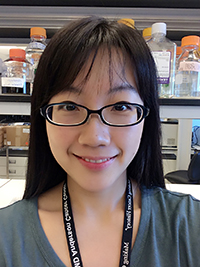
Instructor
MD Anderson Cancer Center University of Texas
Role of Kras dependent guanine-nucleotide exchange factor in nutrient salvage pathway of pancreatic cancer
Overview
Pancreatic cancer has the lowest survival rate among major cancer types. Nearly every human pancreatic cancer contains mutations of KRAS gene (KRAS*), which drive the initiation, development and progression of the disease. Unfortunately, there is no effective means to target KRAS*. Thus, it is critical to advance our understanding of the effects of KRAS* on essential processes required to sustain PDAC to identify new ways to intervene therapeutically. In pancreatic cancer cells, KRAS* turns on macropinocytosis, which is a reorganization of the cell surface membrane to uptake nutrient from the environment. This is a unique way for pancreatic cancer cells to scavenge “food” to fuel their growth. Thus, it stands to reason that blocking the food supply of pancreatic cancer cells by inhibiting macropinocytosis may result in cell death. Thus, to explore ways to starve pancreatic cancer cells, the overall objective of my research is to illuminate the mechanisms by which KRAS* upregulates macropinocytosis. We have revealed that cell membrane movement is important for macropinocytosis. Importantly we identified EFA6 gene, a master regulator for membrane movement, is tightly controlled by KRAS* and is required for the survival of pancreatic cancer cells. Hence, I propose to: (i) determine the impact of EFA6 on macropinocytosis; (ii) evaluate the role of EFA6 on nutrient metabolism in pancreatic cancer; and (iii) elucidate the underlying mechanism of EFA6 function. Completing the proposed research will significantly impact our options to treat pancreatic cancer by blocking their nutrient utilization.